Richard Blanco’s poem “Looking for The Gulf Motel” transports readers to 1970s Florida, recalling a Cuban-American family’s vacations on the sparkling sands of Marco Island. Blanco and international superstar Gloria Estefan join Elisa New and a chorus of Cuban American adults in Miami and middle school students in New York City to reflect on family and what it means to call a place home.
Special thanks to our humanities advisers: Rafael Campo, MA, MD, DLitt(Hon) Associate Professor of Medicine Harvard Medical School; & Doris Sommer, Ira and Jewell Williams Professor of Romance Languages and Literatures and of African and African American Studies, Harvard University, Director of the Cultural Agents Initiative.
Interested in learning more? Poetry in America offers a wide range of courses, all dedicated to bringing poetry into classrooms and living rooms around the world.
by Richard Blanco
Looking for The Gulf Motel
Marco Island, Florida
There should be nothing here I don’t remember . . .
The Gulf Motel with mermaid lampposts
and ship’s wheel in the lobby should still be
rising out of the sand like a cake decoration.
My brother and I should still be pretending
we don’t know our parents, embarrassing us
as they roll the luggage cart past the front desk
loaded with our scruffy suitcases, two-dozen
loaves of Cuban bread, brown bags bulging
with enough mangos to last the entire week,
our espresso pot, the pressure cooker—and
a pork roast reeking garlic through the lobby.
All because we can’t afford to eat out, not even
on vacation, only two hours from our home
in Miami, but far enough away to be thrilled
by whiter sands on the west coast of Florida,
where I should still be for the first time watching
the sun set instead of rise over the ocean.
There should be nothing here I don’t remember . . .
My mother should still be in the kitchenette
of The Gulf Motel, her daisy sandals from Kmart
squeaking across the linoleum, still gorgeous
in her teal swimsuit and amber earrings
stirring a pot of arroz-con-pollo, adding sprinkles
of onion powder and dollops of tomato sauce.
My father should still be in a terrycloth jacket
smoking, clinking a glass of amber whiskey
in the sunset at the Gulf Motel, watching us
dive into the pool, two boys he’ll never see
grow into men who will be proud of him.
There should be nothing here I don’t remember . . .
My brother and I should still be playing Parcheesi,
my father should still be alive, slow dancing
with my mother on the sliding-glass balcony
of The Gulf Motel. No music, only the waves
keeping time, a song only their minds hear
ten-thousand nights back to their life in Cuba.
My mother’s face should still be resting against
his bare chest like the moon resting on the sea,
the stars should still be turning around them.
There should be nothing here I don’t remember . . .
My brother should still be thirteen, sneaking
rum in the bathroom, sculpting naked women
from sand. I should still be eight years old
dazzled by seashells and how many seconds
I hold my breath underwater—but I’m not.
I am thirty-eight, driving up Collier Boulevard,
looking for The Gulf Motel, for everything
that should still be, but isn’t. I want to blame
the condos, their shadows for ruining the beach
and my past, I want to chase the snowbirds away
with their tacky mansions and yachts, I want
to turn the golf courses back into mangroves,
I want to find The Gulf Motel exactly as it was
and pretend for a moment, nothing lost is lost.
“Looking for The Gulf Motel” from Looking for The Gulf Motel by Richard Blanco, © 2012. Aired by permission of University of Pittsburgh Press.
Looking for The Gulf Motel
Marco Island, Florida
There should be nothing here I don’t remember . . .
The Gulf Motel with mermaid lampposts
and ship’s wheel in the lobby should still be
rising out of the sand like a cake decoration.
My brother and I should still be pretending
we don’t know our parents, embarrassing us
as they roll the luggage cart past the front desk
loaded with our scruffy suitcases, two-dozen
loaves of Cuban bread, brown bags bulging
with enough mangos to last the entire week,
our espresso pot, the pressure cooker—and
a pork roast reeking garlic through the lobby.
All because we can’t afford to eat out, not even
on vacation, only two hours from our home
in Miami, but far enough away to be thrilled
by whiter sands on the west coast of Florida,
where I should still be for the first time watching
the sun set instead of rise over the ocean.
There should be nothing here I don’t remember . . .
My mother should still be in the kitchenette
of The Gulf Motel, her daisy sandals from Kmart
squeaking across the linoleum, still gorgeous
in her teal swimsuit and amber earrings
stirring a pot of arroz-con-pollo, adding sprinkles
of onion powder and dollops of tomato sauce.
My father should still be in a terrycloth jacket
smoking, clinking a glass of amber whiskey
in the sunset at the Gulf Motel, watching us
dive into the pool, two boys he’ll never see
grow into men who will be proud of him.
There should be nothing here I don’t remember . . .
My brother and I should still be playing Parcheesi,
my father should still be alive, slow dancing
with my mother on the sliding-glass balcony
of The Gulf Motel. No music, only the waves
keeping time, a song only their minds hear
ten-thousand nights back to their life in Cuba.
My mother’s face should still be resting against
his bare chest like the moon resting on the sea,
the stars should still be turning around them.
There should be nothing here I don’t remember . . .
My brother should still be thirteen, sneaking
rum in the bathroom, sculpting naked women
from sand. I should still be eight years old
dazzled by seashells and how many seconds
I hold my breath underwater—but I’m not.
I am thirty-eight, driving up Collier Boulevard,
looking for The Gulf Motel, for everything
that should still be, but isn’t. I want to blame
the condos, their shadows for ruining the beach
and my past, I want to chase the snowbirds away
with their tacky mansions and yachts, I want
to turn the golf courses back into mangroves,
I want to find The Gulf Motel exactly as it was
and pretend for a moment, nothing lost is lost.
“Looking for The Gulf Motel” from Looking for The Gulf Motel by Richard Blanco, © 2012. Aired by permission of University of Pittsburgh Press.
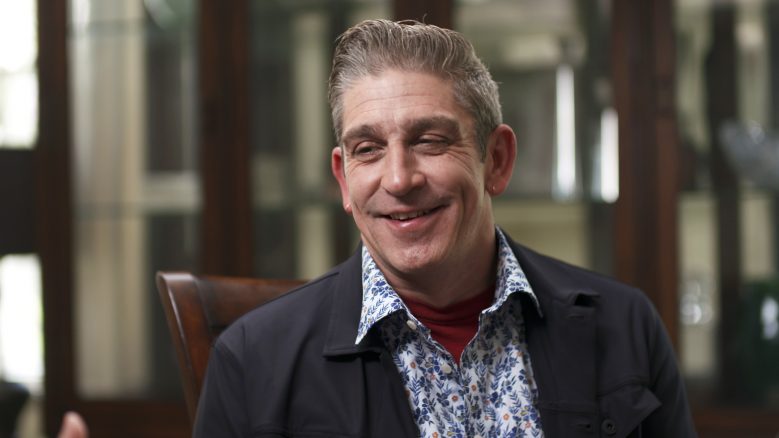
"One of the things that has affected me culturally growing up as a child of Cuban exile immigrants is that it is always constantly about memory, and it's always constantly about what was. Remembering someone is appreciating them, right—or taking the time in a poem to remember them in detail, and render them or re-render them, is another act of love." - Poet Richard Blanco
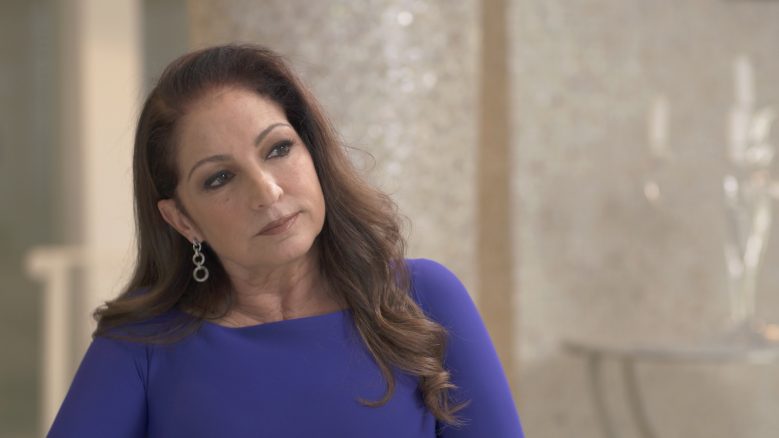
"When the Cubans left Cuba, it's not as if everybody ran out and bought Louis Vuitton seven piece set of luggage, you had to grab what they let you have. When my mother and I left, we were allowed one suitcase. That was it." - Gloria Estefan
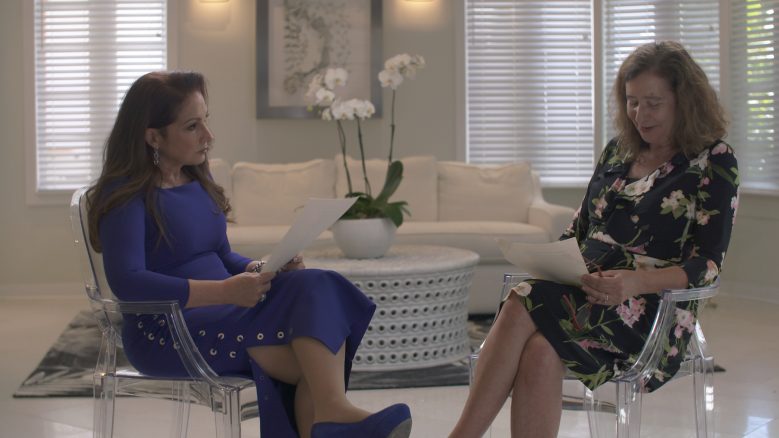
"I think of what our parents went through. I think to myself, if I had just built this whole world here in Miami and someone came in and I had to leave to a country where, that I don't speak the language and my credentials are no longer relevant, and you're a second class citizen and you're at the bottom of the totem pole, you start realizing how difficult it must have been." - Gloria Estefan
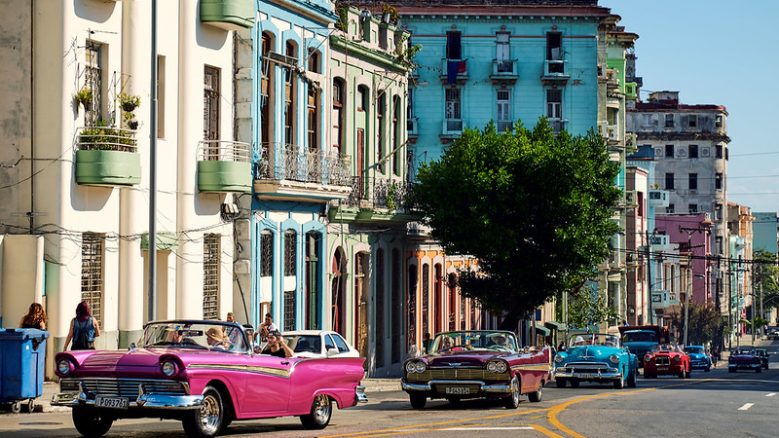
"Cuba was the best place. The sugar was sweeter, the salt was saltier, everything smelled amazing." - Gloria Estefan (Image Credit: Flickr/Pedro Szekley)
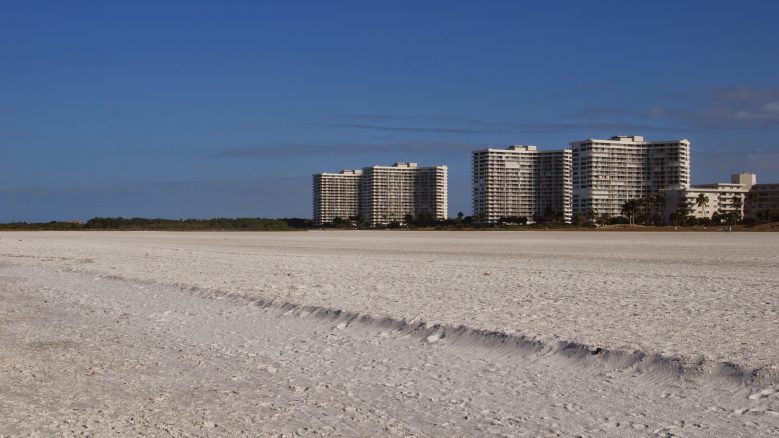
The Marco Island of today—with its beach-side condominiums—isn't how Blanco remembers it. "Sometimes you don't change or your memories don't change, but the physical place changes and so there is nowhere to connect it and then our sense of place is really abruptly sort of distorted. And it's like, did this even happen? Did I even live here? Did I even experience this?" (Image Credit: Wikimedia Commons/olekinderhook)
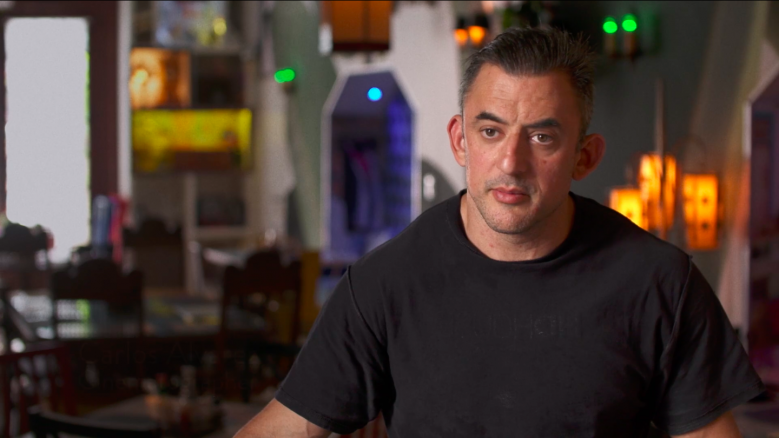
"It was a very advanced country. I always remember them saying that they were like one of the only countries in the world that had color TVs in those times." - Carlos Alvarez
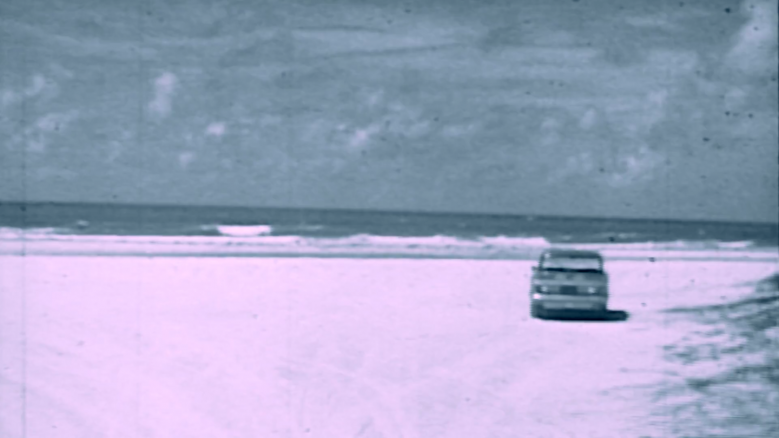
"There should be nothing here I don't remember..." begins Richard Blanco's poem "Looking for the Gulf Motel." Reflecting on a Cuban-American childhood, Blanco recalls family vacations to the titular motel—and all the memories that come flooding back with it. His poem asks us each in turn to think back to our own childhoods—what has stayed with us, and what have we forgotten? As Blanco says: "Everybody has a Gulf Motel."
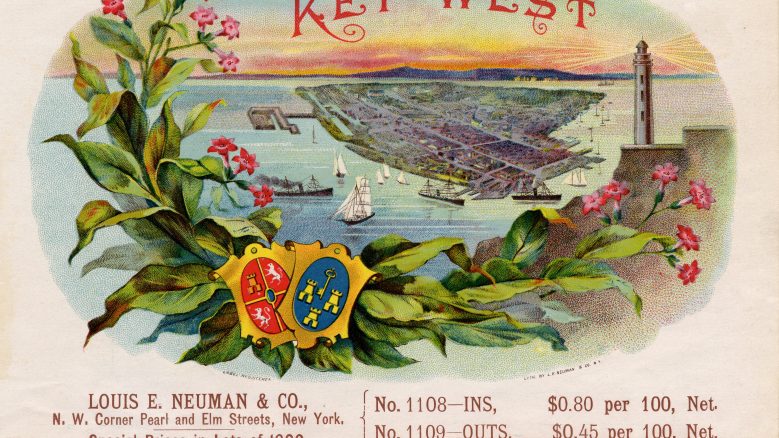
[LOWER THIRD] Jorge Moreno recalls the magic of family getaways, even if they were trips to the next city over: "Whether it be the Varadero, if you were in Havana, or whether it be in Marco Island or the Keys like I did from Miami, it's very similar. It's very close to home, but it feels like a whole new place." (Image Credit: Flickr/Florida Keys Public Library)